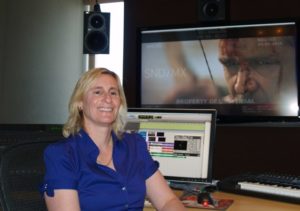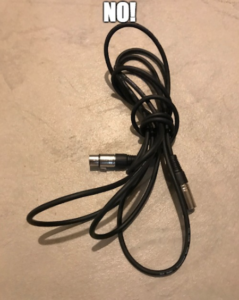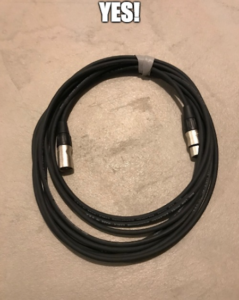
I realize this is a very broad subject; and, consequently, there is an unlimited array of personal opinions about what exactly constitutes a Master and Apprentice relationship. Even the correct terminology for this relationship is an area for debate. Some prefer the classic terms Mentor and Protégé. And, others may find these terms intimidating or outdated, simply referring to this relationship as “an expert who takes someone under his/her wing to help show him/her the ropes,” rather ironic because this is, more or less, the very definition of this influential and complex relationship.
When I think of the term Mentor, it strongly resonates within me. So, I’m going to draw upon some of my own experiences to provide some context for why Mentorship is such an important relationship; and, subsequently, how it has played a key role in my life. I’m sure that many of you will be able to relate to some of these experiences. In truth, I don’t even feel they are necessarily unique when it comes to any type of specialized trade.
Why is Mentorship is so important?
In my years as a working professional in this industry, I have observed that schools specializing in a curriculum based on audio engineering tend to have a lowest common denominator they hope every student paying the money to attend will grasp. There is nothing wrong with that approach; and, it generally works when teaching within the confines of a curriculum that only addresses the basics.
Now, back in the 90’s, I used to manage a three room recording studio. It had everything from a very respectable A room, to an incredible Mic collection, to a state of the art MIDI rig with some of the first DAW software available. I would take interns in every 3-6 months, depending on the schools they were coming from, but never more than two at a time. They always displayed a genuine eagerness to learn. And, they were excited to continue their education in a real-world environment. When I first started taking in interns, it was a learning experience for me too. The first few times I was shocked at what these young men (sadly, yes, the vast majority back then were male) were apparently NOT being taught in school. I asked the first intern to strike a large session that had just finished up tracking, and we had to get ready for the next one in a few hours. I showed him where the Mic locker was, where to store the 2” Reels, and where the track sheets should be stored. I asked him if he understood, and he said, “No Problem.” I headed back to my office to make some calls; and, about 30 minutes later, I walked back into the tracking room and was shocked at what I saw. Cables were hanging twisted and tangled on the cable wall, the room was a mess, and I walked into the Mic locker to find the intern disassembling a vintage Neuman U67. I didn’t know where to begin. I told him to go sit in the lounge and not to touch anything else. After I fixed the Mic, I scrambled to get the room ready for the session, making sure everything was in place for the engineer coming in.
After the session started, I brought the intern into my office and very calmly asked him what he had been doing and why. He was, understandably, nervous. I could tell he had realized that he’d made some massive mistakes on his first day, and he was terrified he would lose his internship and get sent home. Understand, I did have sympathy for him. And, it was for this reason, I decided to tell him that as long as he promises never to disassemble a vintage microphone again, we can work something out. Naturally, I also had to take some responsibility for the incident. My mistake was I had made too many assumptions about what this young student was capable of handling on his own. So, it was obvious to me, that I needed to rethink what I believed interns should first learn when entering a studio. I made a simple list, based on my own experiences as a teenager, beginning with the most basic things I learned during my Mentorship at a small studio in Texas.
This list is deceptively simple, but I have found these skills stand the test of time.
1. Learn how to make proper coffee. You will always get a smile, from both clients and engineers, if good fresh coffee is available.
2. Learn how to wrap cables properly. No one wants to spend 2 hours trying to get a session ready because of tangled wires.
3. Learn how to clean bathrooms. Replace the 5 gallon water bottles, and keep the place free of clutter.
4. Learn how to deal with egos and be professional with clients. Dealing with inflated egos is a test of patience, learn how to control your emotions.
5. Learn how to book sessions. And, how to speak professionally while on the phone.
6. Learn how to best understand client needs. Obviously, you should know whether or not your facility is capable of delivering the product requested.
Certain people skills are necessary for good engineers and producers to truly understand how to get the best result for, and from, their clients. This imperative form of communication is a genuine art form; one that a good mentor will instinctively instill in a young mind. These types of communication skills inevitably come from making mistakes, mistakes that a mentor can help a talented protégé avoid or, more importantly, learn a meaningful lesson. These kinds of nuances are difficult to teach in a classroom setting. Thus, the moral of the story here is that a mentor can help teach all the things that can’t be learned in a classroom. A good mentor can also help guide the protégé through the challenging experience of seeing things totally fall apart or, alternatively, how to interpret the outcome of experiences that go extremely well.
Another observation I’ve made over the years is that some sound designers/engineers have no interest in Mentoring, and are, therefore, very closed off to the idea of sharing knowledge. In some respect, I can fully understand some of their reasons. For example, some may not want to give away any of their guarded secrets, or techniques they have uniquely developed due to the ever increasing competitive nature of this business. Or, they might have a bit of a fraud complex, and, as a result, are scared of being “exposed” for not being as good as they are perceived. Still, others may simply not have the time.
I am reminded of a time when I first moved to Hollywood and started working on a new movie as a dialog editor. The sound designer hired for the movie was an amazing woman by the name of Ann Scibelli. As it turned out, Ann had a tremendously positive influence on me. Although she probably didn’t even realize it at the time. She was incredibly polite and extremely talented. She taught me so much about how to deliver Protools sessions, how to have sound formatted for playback, how to get the most effective practical use from everyday sounds, and how to organize them. I was awestruck as I watched her build a gun shoot-out sequence, and the level of detail she used to breathe life into the scene. As a side note, she is a great storyteller. If you ever get a chance to meet her, ask her about the sounds for Dumb and Dumber’s famous Jeff Daniels bathroom scene. It is truly delightful, and you will not be disappointed.

In short
Being a good mentor can help the world become a better place. I am convinced of that. Taking the time, and having the patience to help someone learn the ropes is not easy. I applaud anyone who takes the opportunity to pass on what they have learned. If you are ever lucky enough to learn from a true master, cherish every moment and absorb everything you can.
Jim


Nice article on aspects and expectations of mentoring . Reminds me of teaching drum lesson , but more important taking them and being humble about it . Had a great teacher at UNC for a master studies one on one for studio and big band drumming . He pointed out something I was doing wrong for 20 plus years . Oh well . Great guy and learned a lot both formally and informally . Was able to transfer that to instruction and live playing . I still use it to this day !!